Mulan: Disney aims to win over China with second take on the legend
- Published
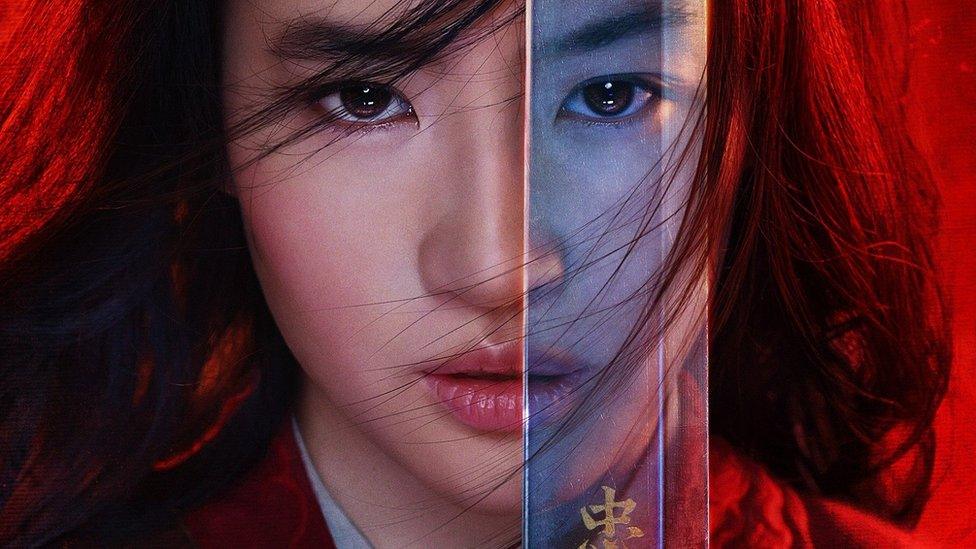
China now has its first real-life Disney princess
There won't be songs or talking dragons, and the film's antagonist will be a Chinese sorceress, not an evil leader of the Hun army - but Mulan is making her return to the big screen.
This week Disney released a teaser trailer for the live-action remake of its 1998 classic, a story based on a legendary female warrior who disguises herself as a man to fight in place of her ailing father in China's imperial army.
It joins a string of Disney hits from the 90s being revived for the 21st Century, including Cinderella, Beauty and the Beast and Aladdin.
The animated Mulan flopped in its birthplace, external when it was released more than two decades ago, but this time Disney is pulling out all stops to win China over with its version of their heroine.
Let's get down to business
When the Disney original first aired, China was not a major market for Disney. Twenty years on, China is the second-biggest movie market in the world.
Around 70% of Hollywood studios' revenue are now generated overseas, compared with around 30% two decades ago. And Chinese audiences today are able to add millions to box office takings.
"Chinese takings can make or break a movie," said writer and cultural analyst Xueting Christine Ni.
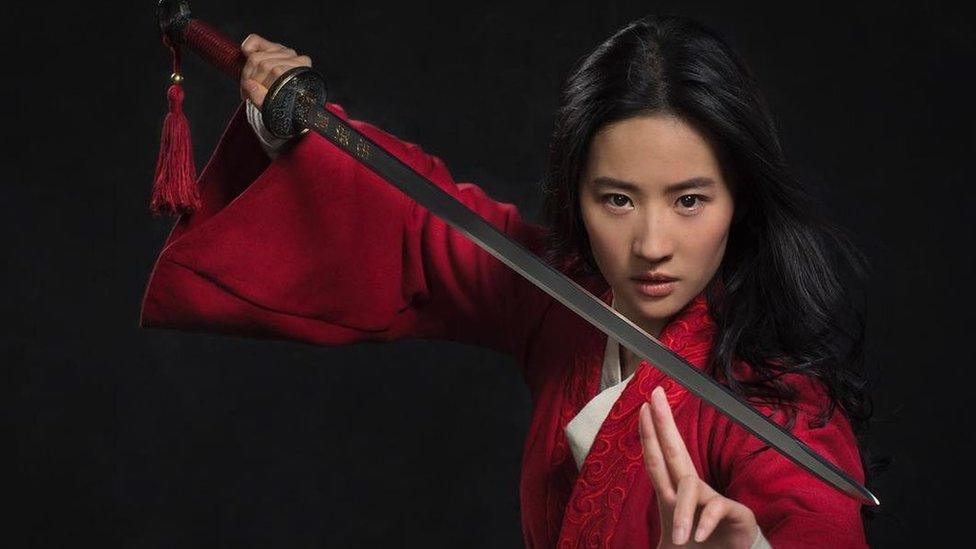
The new Hua Mulan is looking to slay China's box office
And Disney knows this - which is why its spending $300m (£240m) on the film, according to one of its stars, Gong Li.
"Disney is aggressively targeting China," Stanley Rosen, a professor in political science from the University of Southern California, told the BBC.
Recent Disney offerings, like Toy Story 4, failed to see Chinese box office success. In contrast, Steven Spielberg's DreamWorks Studios, which split from Disney in 2016, had a huge hit among Chinese audiences with its Kung Fu Panda instalment.
For that film, says Prof Rosen, "they spent a lot of time in China, investing efforts in researching pandas and talking to experts".
"Chinese audiences are clearly more sophisticated now so if Disney wants to win them back, they have to nail the cultural aspects of Mulan."
That means the new movie can't be a play-by-play of the old one.
"[The Disney original] was trying so hard to be Chinese, but in a stereotypical way - there's lanterns, fireworks.. they even stuck a panda in there. The humour, the pacing the relationships, are either wholly American, or what America imagines China would be like," Ms Ni told the BBC.
In one scene for example, the emperor is seen bowing to Mulan. It would be unthinkable for the emperor, who was seen as a god-like figure in China at the time, to bow to anyone.
Making it right
Casting was always going to be critical for this film.
Disney banished early fears of "whitewashing" - there were wholly unfounded rumours she was to be played by Jennifer Lawrence - by casting Chinese American actress Liu Yifei in the lead role.
It then upped the show's star power by featuring martial arts legend Jet Li as the Chinese emperor and A-list superstar Gong Li as a villainous sorceress - huge names in China who have also made it big in Western cinema.
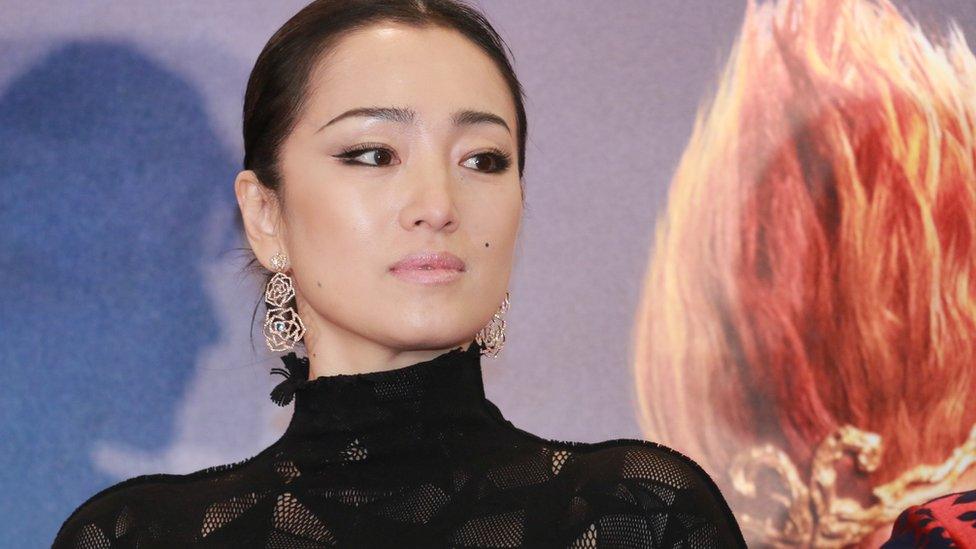
Will Chinese star power aid Disney's quest in winning over mainland audiences?
But casting is "simply one element of better representation and inclusivity in Disney films", said cultural expert Rebecca-Anne Rozario, a professor at Monash University in Melbourne, Australia.
So there are other factors that Disney will have to include in order to make the film a success.
Mulan is a national heroine in ancient Chinese legend. Legends of her date back to the Northern Wei dynasty, as early as around 380AD. Think less Disney princess, more Chinese Joan-of-Arc.
So the new film script went back to the original 6th Century source material, the Ballad of Mulan, for inspiration. It was also filmed partly in China, and the female-centred story also has a female director in Niki Caro.
"[From the] tone of the [new] trailer, [it looks] much closer to the original legend than the 1998 animation and therefore closer to Hua Mulan as the Chinese know her - the brave young woman who upholds her duty to state and family," said Ms Ni.
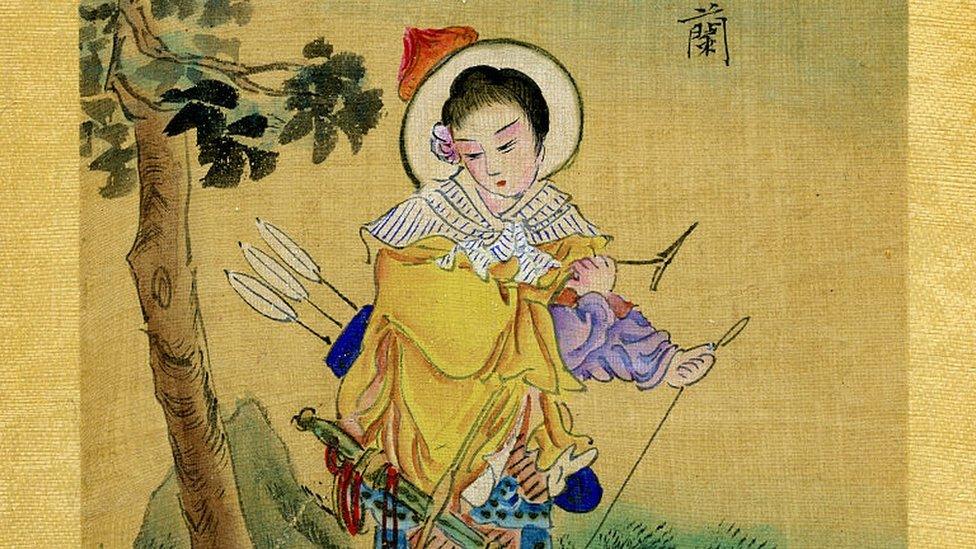
A Chinese depiction of Mulan from the late 19th Century
"I think this time round, the live action will have a much better chance of winning over Chinese audiences."
Who is that girl I see?
The highly anticipated remake has inevitably met some criticism.
"Where is the singing?" complained one disgruntled fan on Facebook. "This isn't the Mulan I remember if we don't hear the songs we grew up with."
Others mourned the absence of wise-cracking dragon Mushu.
"We know Disney is changing a lot of things and dropping many of the original characters but Mushu was hilarious," one said.
The heroine's lucky cricket and sassy grandmother don't feature either. In their place is Mulan's new and younger sister.
And some eagle-eyed people spotted historical inaccuracies in the trailer. Mulan is seen living in a tulou hut, a traditional style of roundhouse. But those are from Fujian, more than 1,000km from Henan, the northern province where Mulan was said to have originally hailed from and were built centuries after her era.
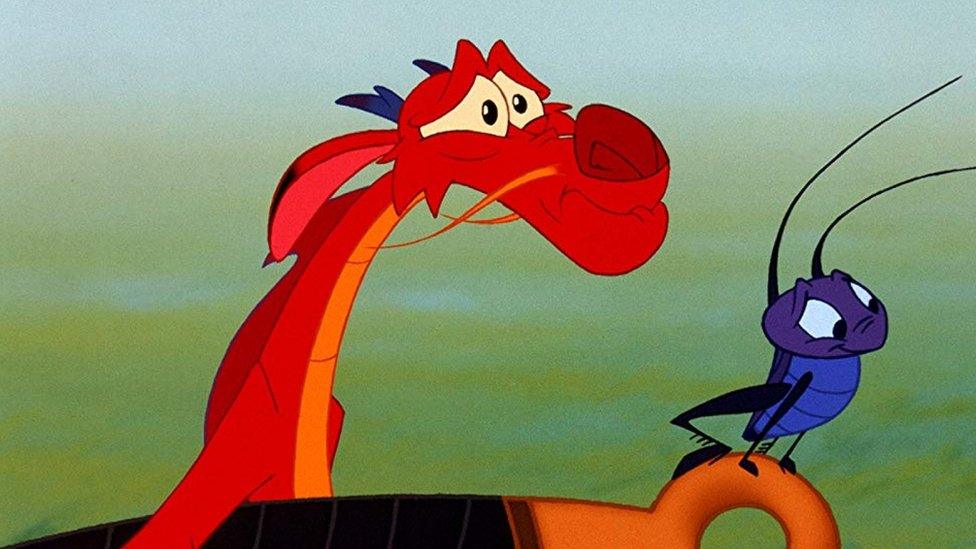
Mulan's sidekicks sadly won't make it to the 2020 release
But there's been plenty of positive reaction too. People on Chinese social media have praised Liu Yifei's debut as Mulan. An online poll on Chinese micro-blogging site Weibo also found that over 115,000 users were "satisfied" with what they knew of the film so far.
"I would take inaccurate huts over smart mouthed dragons any day," said one person on Weibo.
"China finally has its own Disney princess, which no-one can lay claim on," wrote another.
Another person, who said she did not relate to the original animated film growing up, shared her newfound excitement.
Disney releases the new trailer for Mulan
"Hua Mulan was the heroine who graced our storybooks in school. I'm happy that the trailer is setting her story up as more of a Chinese martial arts epic rather than an American cartoon."
But high praise came from the voice of the "original" Mulan, Ming-Na Wen, who took to Twitter to praise Liu's performance.
Allow X content?
This article contains content provided by X. We ask for your permission before anything is loaded, as they may be using cookies and other technologies. You may want to read X’s cookie policy, external and privacy policy, external before accepting. To view this content choose ‘accept and continue’.

The full film is scheduled for release in March next year. Disney would not give us any further details on it for now, but said more information would come out as the release date approached.
There are suggestions some of the classic songs from the animated movie will crop up in some form, but that may end up being a secondary issue for Chinese Mulan fans.
As one Weibo user put it: "China's Mulan is back."
- Published30 November 2017
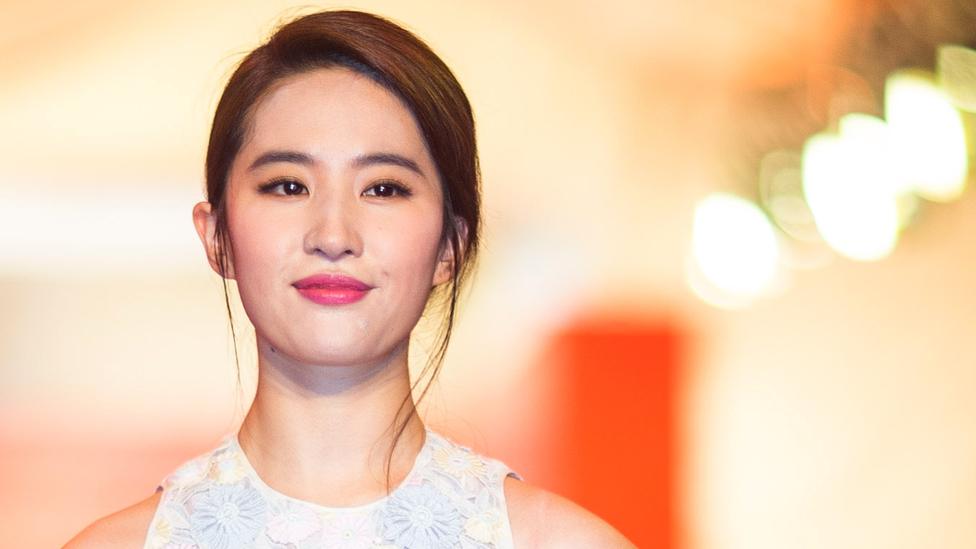
- Published29 April 2019
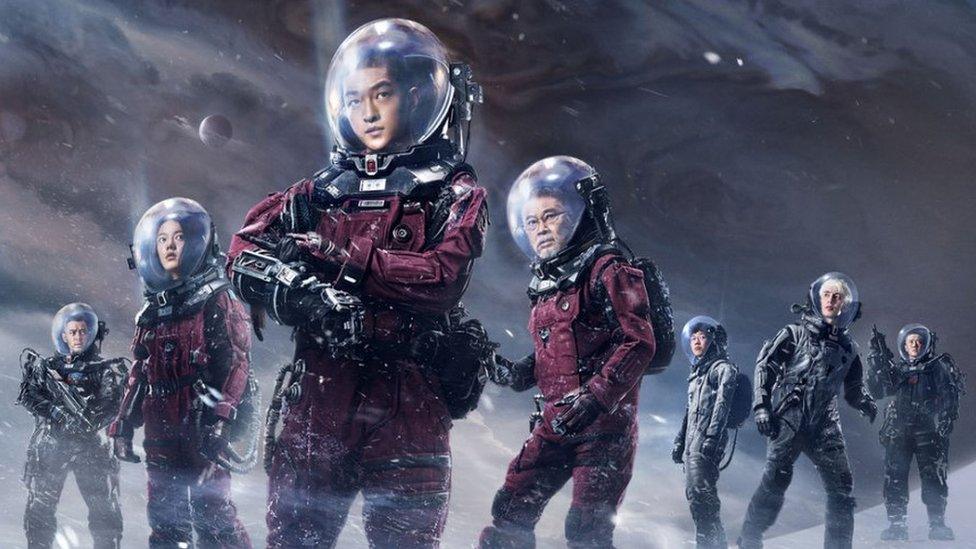
- Published8 January 2016
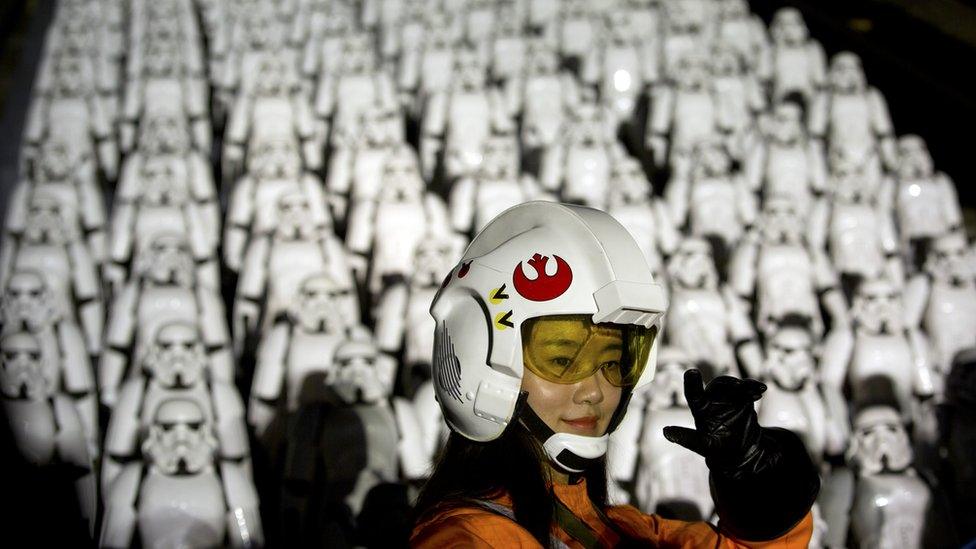
- Published14 June 2016
